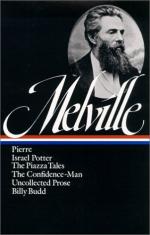But after his second glass, Israel declined to drink more, mild as the beverage was. For he noticed, that not only did the three gentlemen listen with the utmost interest to his story, but likewise interrupted him with questions and cross-questions in the most pertinacious manner. So this led him to be on his guard, not being absolutely certain yet, as to who they might really be, or what was their real design. But as it turned out, Squire Woodcock and his friends only sought to satisfy themselves thoroughly, before making their final disclosures, that the exile was one in whom implicit confidence might be placed.
And to this desirable conclusion they eventually came, for upon the ending of Israel’s story, after expressing their sympathies for his hardships, and applauding his generous patriotism in so patiently enduring adversity, as well as singing the praises of his gallant fellow-soldiers of Bunker Hill, they openly revealed their scheme. They wished to know whether Israel would undertake a trip to Paris, to carry an important message—shortly to be received for transmission through them—to Doctor Franklin, then in that capital.
“All your expenses shall be paid, not to speak of a compensation besides,” said the Squire; “will you go?”
“I must think of it,” said Israel, not yet wholly confirmed in his mind. But once more he cast his glance on Horne Tooke, and his irresolution was gone.
The Squire now informed Israel that, to avoid suspicions, it would be necessary for him to remove to another place until the hour at which he should start for Paris. They enjoined upon him the profoundest secresy, gave him a guinea, with a letter for a gentleman in White Waltham, a town some miles from Brentford, which point they begged him to reach as soon as possible, there to tarry for further instructions.
Having informed him of thus much, Squire Woodcock asked him to hold out his right foot.
“What for?” said Israel.
“Why, would you not like to have a pair of new boots against your return?” smiled Home Tooke.
“Oh, yes; no objection at all,” said, Israel.
“Well, then, let the bootmaker measure you,” smiled Horne Tooke.
“Do you do it, Mr. Tooke,” said the Squire; “you measure men’s parts better than I.”
“Hold out your foot, my good friend,” said Horne Tooke—“there—now let’s measure your heart.”
“For that, measure me round the chest,” said Israel.
“Just the man we want,” said Mr. Bridges, triumphantly.
“Give him another glass of wine, Squire,” said Horne Tooke.




